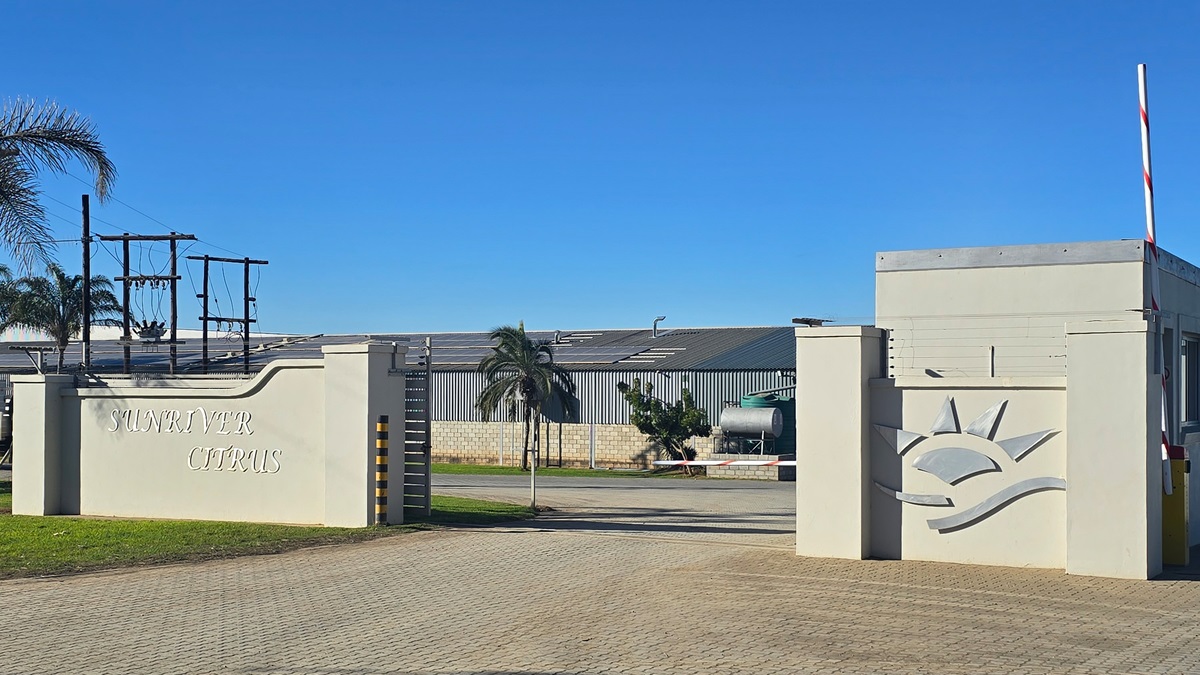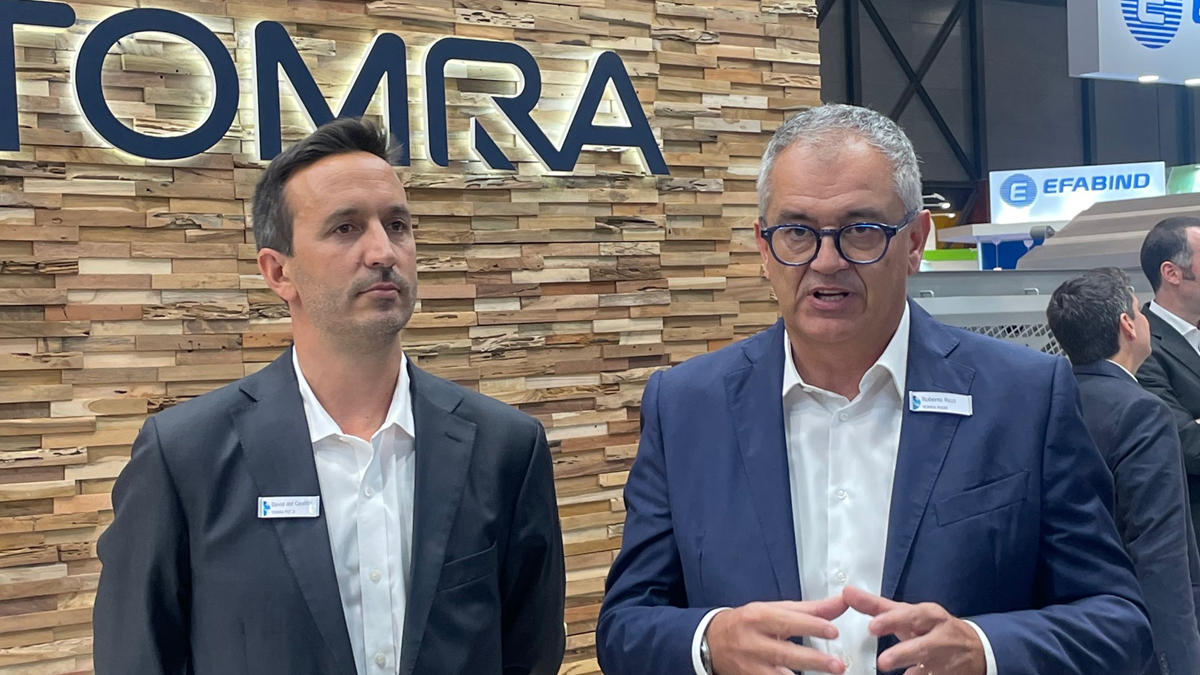Conditioning , Processing
Nimbus BSI+ proves its value to the nut industry one year after launch
It?s been a year since TOMRA launched its innovation in the Nimbus Biometric Signature Identification (BSI+) technology at The Almond Conference, December 2017 in California. Product manager, Roel Molenaers, shares the exciting results nut producers are seeing following their implementation of Nimbus BSI+. Increased yields, more accurate defect detection and ?pack-to-grade? quality in a single pass It may only be halfway through the nut processing season for many producers, but those using the new Nimbus BSI+ sorter from TOMRA are already reporting back with exciting results. The BSI+ module identifies product defects using both near infrared and visible spectrum wavelengths to make a highly detailed classification decision. While the standard BSI is great for foreign material removal, BSI+ goes much further. It enables customers to achieve a higher level of food safety and accurately classify multiple grades of product quality. Roel explains, ?Put simply, producers know a lot more about the product being inspected. The machine collects more data about the composition of the product and uses it to make advanced decisions about quality, defects, insect damage, allergens and cross contamination. This means an increased yield and also some unprecedented defect detections that have the potential to give businesses a very strong competitive edge.? Why Nimbus BSI+ is a technically superior addition to the packhouse This latest Nimbus technology is unique in its ability to detect both color and chemical composition in the same pass. It combines this information to make a more accurate decision about grading the product. The BSI+ scanner deploys a wider spectrum than standard BSI, detecting even the slightest defects. On top of this, the Nimbus platform can determine different shades of chlorophyll ? particularly vital in pistachio sorting ? to create an even better contrast between good products and defects. Other available Nimbus technologies are SWIR, detecting the contrast between water-based products and other materials, and Detox for aflatoxin detection on almonds and peanuts. With more high-quality information being collected, BSI+ sorters are able to determine definitive grades of good and bad products. This results in increased yield and a positive impact on bottom line. How Bright Light Agribusiness is using Nimbus BSI+ sorters to achieve ?pack-to-grade? Bright Light Agribusiness is one of Australia?s fastest growing almond producers. They invested in 15 Nimbus BSI+ sorters for their state-of-the-art processing facility. They see Nimbus BSI+ as integral to achieving their goal of a ?pack-to-grade? quality in a single pass. Tim Orr, Operations Manager at Bright Light, says, ?We pride ourselves on high quality products and exceeding our customers? expectations. We think longer-term and consequently we went through a rigorous process to select our preferred option from the different sorting solutions out there. By using TOMRA?s expertise, the concept that we have put together with our project coordinator, PASS, will deliver us a pack-out product with the least amount of human interaction and reprocessing, which is traditionally required to make grade.? Learn more about the partnership between Bright Light Agribusiness and TOMRA here. Specific value across different nut types Almonds ?Ability for BSI+ to very accurately detect insect damage, rancid and mould. With BSI+ we can now also see resin, stones, hard plastics of different colors. BSI+ can also do splits based on color (white/brown) Detection of shell and hull, but also detection of doubles and splits. Hazelnuts ? Detection of shell, stone and sticks. With BSI+, also all quality defects like rotten and insect bites ('cimicato'). Mechanical damage is possible with BSI+ Pistachio Kerneals ? As well as detecting shell and sticks, BSI+ we can also see quality defects like shriveled (mummies), rotten (black), insect damage, Inshell ? BSI+ can see stains on the shells and hull on the shell can be detected. Cashew nuts ? detection of brown skin (testa) on cashew nuts after shelling is now achieved using BSI+ We have a team dedicated to finding solutions for a large range of defects and we are actively researching more advanced technologies every year. Let?s run your product across the BSI+ and see what it can do.
10 January, 2019
Its been a year since TOMRA launched its innovation in the Nimbus Biometric Signature Identification (BSI+) technology at The Almond Conference, December 2017 in California. Product manager, Roel Molenaers, shares the exciting results nut producers are seeing following their implementation of Nimbus BSI+. Increased yields, more accurate defect detection and pack-to-grade quality in a single passIt may only be halfway through the nut processing season for many producers, but those using the new Nimbus BSI+ sorter from TOMRA are already reporting back with exciting results. The BSI+ module identifies product defects using both near infrared and visible spectrum wavelengths to make a highly detailed classification decision. While the standard BSI is great for foreign material removal, BSI+ goes much further. It enables customers to achieve a higher level of food safety and accurately classify multiple grades of product quality. Roel explains, Put simply, producers know a lot more about the product being inspected. The machine collects more data about the composition of the product and uses it to make advanced decisions about quality, defects, insect damage, allergens and cross contamination. This means an increased yield and also some unprecedented defect detections that have the potential to give businesses a very strong competitive edge. Why Nimbus BSI+ is a technically superior addition to the packhouseThis latest Nimbus technology is unique in its ability to detect both color and chemical composition in the same pass. It combines this information to make a more accurate decision about grading the product. The BSI+ scanner deploys a wider spectrum than standard BSI, detecting even the slightest defects. On top of this, the Nimbus platform can determine different shades of chlorophyll particularly vital in pistachio sorting to create an even better contrast between good products and defects. Other available Nimbus technologies are SWIR, detecting the contrast between water-based products and other materials, and Detox for aflatoxin detection on almonds and peanuts. With more high-quality information being collected, BSI+ sorters are able to determine definitive grades of good and bad products. This results in increased yield and a positive impact on bottom line. How Bright Light Agribusiness is using Nimbus BSI+ sorters to achieve pack-to-gradeBright Light Agribusiness is one of Australias fastest growing almond producers. They invested in 15 Nimbus BSI+ sorters for their state-of-the-art processing facility. They see Nimbus BSI+ as integral to achieving their goal of a pack-to-grade quality in a single pass. Tim Orr, Operations Manager at Bright Light, says, We pride ourselves on high quality products and exceeding our customers expectations. We think longer-term and consequently we went through a rigorous process to select our preferred option from the different sorting solutions out there. By using TOMRAs expertise, the concept that we have put together with our project coordinator, PASS, will deliver us a pack-out product with the least amount of human interaction and reprocessing, which is traditionally required to make grade. Learn more about the partnership between Bright Light Agribusiness and TOMRA here. Specific value across different nut typesAlmonds Ability for BSI+ to very accurately detect insect damage, rancid and mould.- With BSI+ we can now also see resin, stones, hard plastics of different colors. BSI+ can also do splits based on color (white/brown)- Detection of shell and hull, but also detection of doubles and splits. Hazelnuts Detection of shell, stone and sticks. With BSI+, also all quality defects like rotten and insect bites ('cimicato'). Mechanical damage is possible with BSI+ Pistachio- Kerneals As well as detecting shell and sticks, BSI+ we can also see quality defects like shriveled (mummies), rotten (black), insect damage,- Inshell BSI+ can see stains on the shells and hull on the shell can be detected. Cashew nuts detection of brown skin (testa) on cashew nuts after shelling is now achieved using BSI+ We have a team dedicated to finding solutions for a large range of defects and we are actively researching more advanced technologies every year. Lets run your product across the BSI+ and see what it can do.











